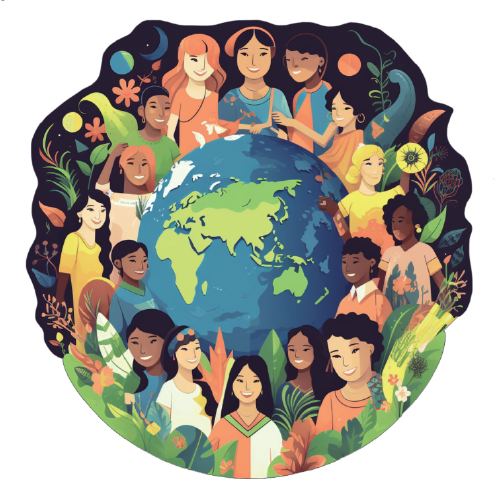The Global South should have a bigger voice


India has set several new benchmarks during its G20 presidency. To begin with, never before has any country holding the G20 presidency witnessed so many meetings in so many cities preceding the summit.
This year's G20 Summit, which concluded on Sunday, was preceded by more than 200 events in 60 cities. These multi-sectoral, multilevel meetings, and G20's dozen-plus officially engaged groups — such as Business 20, Science 20, Youth 20 and Women 20-have produced the highest number of recommendations and added many new dimensions to the parleys.
Besides themes of climate finance, women-led development, sustainable development, agriculture and food security, digital public infrastructure and the ongoing Ukraine crisis, G20 policy priority has put the focus on the concerns of the Global South.
The revival of debate, and bringing the Global South to the centre-stage have already rid the term "Global South" of its conventional pejorative connotation. The term was coined by US academic Carl Oglesby to describe the centuries of dominance of some countries (of the North) over others (the South). This basically alluded to a hierarchical relationship between former colonial powers and colonized countries.
Since the 1970s the term "Global South" has become a nomenclature to describe the evolving solidarity between the developing and least-developed countries largely located in the southern hemisphere. Others use the term "Global South" to mean countries from Asia, Africa, Latin America and Oceania, barring Australia and New Zealand. But even today, the term remains fluid, with emerging market economies such as China and India identifying themselves as developing countries.
The travesty of this North-South divide lay in the fact that G20 deliberations had nevertheless continued to be an elite exercise among economists and policy wonks. The G20 had failed to appreciate how the exclusion of the Global South from their market-driven globalization had created an existential crisis for the overwhelming majority of the global population. More recently the rich countries' protectionist impulses have further accentuated the gap between the rich and the poor, both within and between countries.
Meanwhile, the countries of the Global South have continued to bear the brunt of the calamitous outcomes of urbanization — and industrialization-driven economics, resulting in the climate crisis and are still smarting under the devastating impacts of the COVID-19 pandemic and the Ukraine crisis-induced food, fuel, fertilizer and financing shortages and price hikes.
All this makes the inclusion of the Global South in any multilateral discussion a necessity. This is what India has sought to achieve during its G20 presidency.
Indeed, in the past couple of years, the G20 has also emerged as a grouping bridging the countries of the Global North and Global South, and bringing them together as equal partners. But the G20's efforts have largely been restricted to paying lip service. However, the G20 presidency, passing from Indonesia (2022) to India (2023) to Brazil (2024) to South Africa (2025) presents a golden opportunity to steer this powerful grouping's priorities and initiatives toward the Global South.
The Global South is projected to contribute about two-thirds of global growth by 2050. This explains why the Global South must be integral to G20 decision-making. Making the Global South integral to G20 decision-making will also facilitate, and accelerate, rich nations' partnerships with developing countries in trade, investment and technology transfer, as well as to address various global challenges. It is in this context that India has been making efforts to make the Global South integral to the G20.
During India's presidency, the G20 has seen major issues of the Global South such as digital public infrastructure, biofuels, farm products, traditional medicine, and lifestyles for sustainability emerging as the highlights. The efforts have been to ensure the G20 becomes even more diversified and democratic in order to enhance the legitimacy and efficacy of its future initiatives.
The author is a professor of international relations at Jawaharlal Nehru University, New Delhi. The views don't necessarily reflect those of China Daily.
If you have a specific expertise, or would like to share your thought about our stories, then send us your writings at [email protected] or [email protected].

































